Crowding:
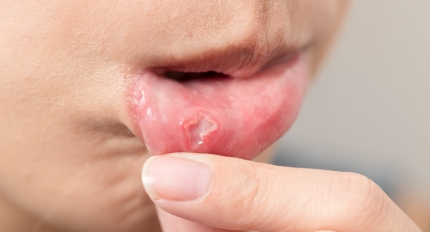
As wisdom teeth try to emerge in a mouth with limited space, they can cause crowding of existing teeth. This potentially means undoing years of orthodontic corrections.
On this Page ↓
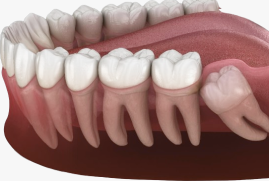
Wisdom teeth, aka third molars, are the last set of teeth to develop and emerge in oral cavity. They usually appear between the ages of 17 and 25, at the very back of your mouth behind your existing molars.
While our ancestors needed these teeth to chew raw, tough foods, modern diets and utensils have made wisdom teeth largely unnecessary. Some people may have all four wisdom teeth, while others might have fewer or none at all – a normal variation in human anatomy.
When properly aligned, wisdom teeth can be a valuable asset. However, they often become misaligned or impacted, leading to various dental problems. Misalignment can cause crowding, damage to adjacent teeth, or jaw issues. Partially erupted wisdom teeth creates openings for bacteria, leading to increased risk of infection & decay.
Due to their location, it becomes difficult to clean wisdom teeth properly. This makes them more susceptible to gum disease and cavities. In many cases, dentists recommend removal to prevent future complications.
Many people have impacted wisdom teeth, due to lack of enough room for tooth to emerge properly. These teeth may grow at odd angles, potentially damaging adjacent teeth or remaining trapped in the jawbone.

Crowding:

As wisdom teeth try to emerge in a mouth with limited space, they can cause crowding of existing teeth. This potentially means undoing years of orthodontic corrections.
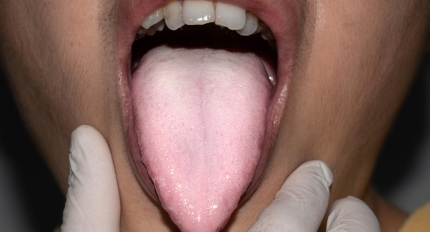
Pain and Discomfort:

Wisdom teeth while erupting causes significant pain. This pain is even more if they’re impacted or growing at an angle.
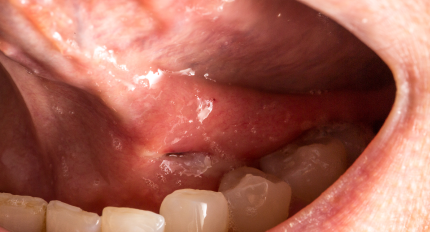
Infections and Abscesses:

Partially erupted wisdom teeth create pockets where bacteria thrive. This further leads to infections or abscesses.

Gum Disease:

Their positioning in the oral cavity makes it difficult to clean. Eventually, lack of oral hygiene maintenance leads to increased risk of gum diseases.
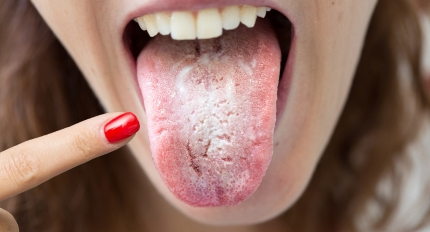
Cysts or Tumors:

Tooth development occurs within individual sacs. In some rare cases, it gets filled with fluid. This in turn leads to the formation of cyst that can damage the jawbone, teeth and nerves.
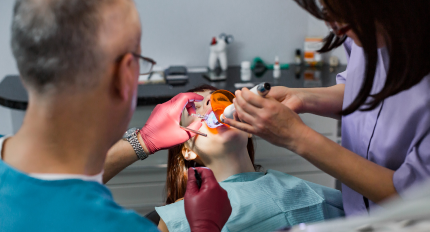
Tooth Decay:

Wisdom tooth that are partially erupted are more susceptible to decay. This is because of their hard to reach location.

Complications with Orthodontic Treatment:

Emerging wisdom teeth interferes with:
Wisdom teeth are the last set of molars to emerge. They can sometimes cause problems due to limited space in the mouth. While it’s not always necessary to extract wisdom tooth, certain situations may demand it. Having a better understanding of the associated symptoms and factors helps you make an informed decision.
Common Situations Requiring Removal:
If you’re experiencing any of these issues, it’s crucial to consult with your dentist. They may recommend removal based on your specific situation.
Recognizing Symptoms:
Pay attention to these signs that might indicate a need for wisdom teeth removal:
Long-term risks of not removing problematic wisdom teeth can include increased risk of:
In some cases, cysts may develop around untreated wisdom teeth..
Factors to Consider:
When deciding whether to remove wisdom teeth, dentists take into account:
Many dental professionals recommend preventive removal in late teens or early 20s, as the procedure is often easier and recovery is typically faster at this age. However, if wisdom teeth are fully erupted, functional, and can be cleaned properly, removal might not be necessary.
Remember, each case is unique. Your dentist provides personalized advice based on your individual situation. Early detection helps to prevent potential complications & ensures optimal oral health maintenance.
Wisdom teeth removal procedures can be categorized into two main types: simple extraction and surgical extraction. The method used depends on the position and condition of your wisdom teeth.

Simple Extraction:


Surgical Extraction:

What to Expect:
The wisdom tooth extraction process involves several steps, usually completed within an hour. It begins by administration of the agreed upon anesthesia, be it local or general. This ensures your comfort throughout the procedure.
1. Anesthesia Administration:
Your oral surgeon will administer the agreed-upon anesthesia, which may be:
2. Tooth Exposure:
If necessary, the surgeon makes small incisions in your gums to expose impacted teeth.
3. Tooth Removal:
The wisdom tooth is carefully loosened and lifted from its socket. In some cases, the tooth may be divided into sections for easier removal.
4. Site Cleaning:
The area is cleaned thoroughly to prevent infection.
5. Closing the Site:
If needed, stitches are placed to close the surgical site.
6. Bleeding Control:
Gauze is placed over the sockets to manage bleeding.
Duration: The entire procedure typically takes an hour or less. Though few of the complex cases may require more time.
Pain Management: The chosen anesthesia ensures comfort throughout the process. Post-procedure pain management will be discussed during your consultation.
1.Consultation:
2. Anesthesia Decision:
Choose your preferred sedation method in consultation with your surgeon.
3. Pre-Procedure Instructions:
4. Day of Surgery Preparation:
5. Home Recovery Setup:
Remember to follow all specific instructions provided by your oral surgeon, as they may vary based on your individual case and chosen anesthesia method.
The recovery after wisdom tooth extraction requires careful attention and proper care. While the speed of recovery varies depending upon the complexity of the extraction, few tips to ensure smoother healing:
Right After Your Procedure:
First Day:
Keeping Your Mouth Clean:
After the First Day:
Later On:
Remember, early intervention can help manage symptoms more effectively and identify any potential underlying issues. Don’t hesitate to seek medical advice if you’re concerned about your mouth ulcers.
Signs of Complications:
Be alert for the following symptoms and contact your oral surgeon if you experience:
Remember, each patient’s road to recovery is different. Through your healing phase, pay close attention to the detailed instructions given to you by your oral surgeon. Also don’t at all be afraid to ask questions. You’ll quickly return to your regular schedule with the right care and attention!
Although wisdom teeth extraction is a common and safe treatment, there are certain possible risks to be aware of. Understanding these help you recognize when to seek additional care during recovery.
Dry Socket:
Infection:
Nerve Damage (Paresthesia)
Other Potential Complications:
Management of Complications:
1. Prevention of Oral Health Issues:
2. Alleviating Existing Problems:
3. Long-term Oral Health:
4. Cost-Effective
5. Simplified Dental Care
Wisdom teeth can sometimes cause problems. If you’re planning for wisdom tooth removal, Clove Dental offers an services at affordable cost.
Our cost of wisdom teeth removal starts from Rs. 6,790. With our dental experts and Oral Surgeons, you can expect the best in class treatment.
The final cost of the treatment may vary based on case to case.
OFFER: Up to 25% OFF on Wisdom Tooth Extraction.
Q.1.Do wisdom teeth need to be removed?
It depends on how they have erupted and grown. In many cases, the mouth lacks enough space, causing crowding and impacted of tooth. In such cases, the wisdom teeth need to be removed. If they have grown without any hassle, then there is no need.
Q.2.Do they put you on anesthesia for the procedure?
Dentists numb the area before wisdom tooth extraction, and generally recommend local anesthesia.
Q.3. How long does the pain last after the removal of wisdom teeth?
The wisdom tooth pain may be there for at most a couple of days. If all the necessary precautions suggested by your dentist are followed, it leads to faster recovery.
Q.4.Common Problems that a patient faces with impacted wisdom teeth?
Common Problems with impacted wisdom teeth:
Q.5.How many wisdom teeth need to be removed?
It depends on your case. Some people need all four removed, others might need fewer. This is determined upon the basis of x-rays and clinical examination.
Q.6. What kind of anesthesia will I get?
You have three choices:
Your dentist will help you pick the best one for you. They’ll consider factors like how tricky your teeth are to remove and how nervous you might be.
Remember, you can always ask questions if you’re unsure about anything. Your dentist wants you to feel good about your choice.
Q.7.How long is the wisdom tooth removal procedure likely to last?
It usually takes between forty-five and an hour. The duration may vary a/c on the number of teeth being extracted and their level of difficulty.
Q.8.How to know if the impacted wisdom teeth has caused damage to other teeth?
Your dentist will use clinical examination and radiograph to look for any signs of damage.
Q.9.Is there a risk that I might have nerve damage?
There’s a small associated risk, but it’s rare. With correct techniques used, the risk of nerve damage is minimal. If there is associated risk due to tooth positioning, your dentist will discuss it with you before the procedure.
Q.10.What other dental treatments might I need at a later date?
The need for further dental treatments depends upon a varied number of factors. The removal of wisdom tooth helps you in reduced occurrence of few of them.
Q.11.How long does it take to heal after getting a tooth extracted?
In most cases, healing starts within 3-4 days, but complete healing might take few weeks.
Q.12.Will I need to make arrangements for someone to drive me home after the procedure?
Yes, if you’re having sedation or general anesthesia. It’s not safe to drive yourself home.
Q.13.When do I need to arrive at the dental clinic or hospital?
Your dentist’s office will tell you when to arrive. It’s usually about 15-30 minutes before your appointment time.
Q.14. Do I need to avoid eating food or drinking fluids or both (fast)? If so, when do I begin?
The type of anesthesia you are having will determine this. Your dentist will provide you with specific instructions on when to reduce your intake of food and drink.
Q.15.Can I take my prescription medications before the surgery?
Usually most medications can be taken before surgery. But few medications such as blood thinners are seen to be associated with delayed blood clot. So during consultation make sure to brief your dentist about all your prescription medication, so that they can suggest accordingly.
Q.16. Should I avoid any nonprescription drugs before the surgery?
Some over-the-counter medications are seen to cause delayed blood clot. During your consultation, your dentist will brief you about which ones to avoid and how long before surgery.

Clove Dental clinics are Available in 23 Indian Cities. Book an appointment at Clove Dental Clinics for the best dental treatments by expert dentists/orthodontists for Wisdom Teeth Removal at a reasonable cost. Select your city below to find the